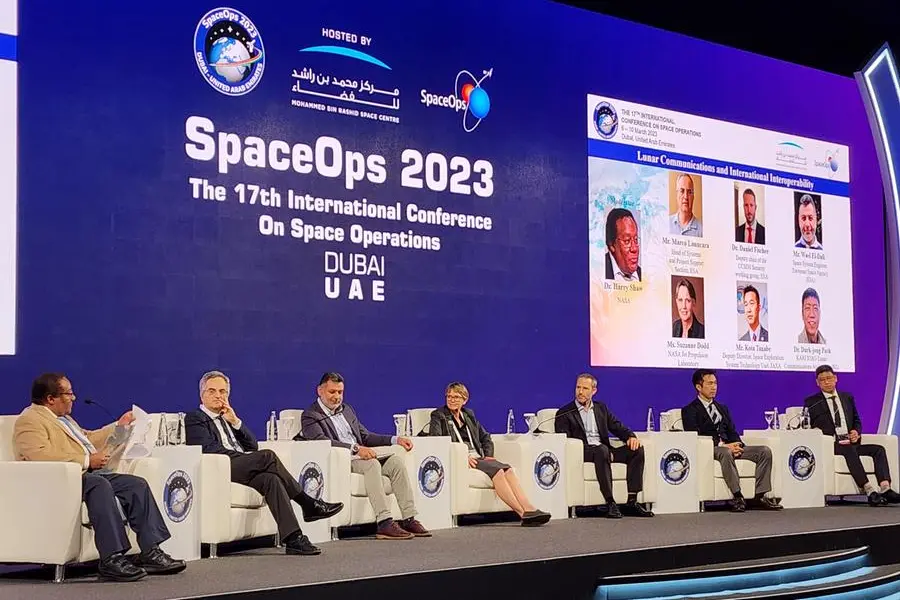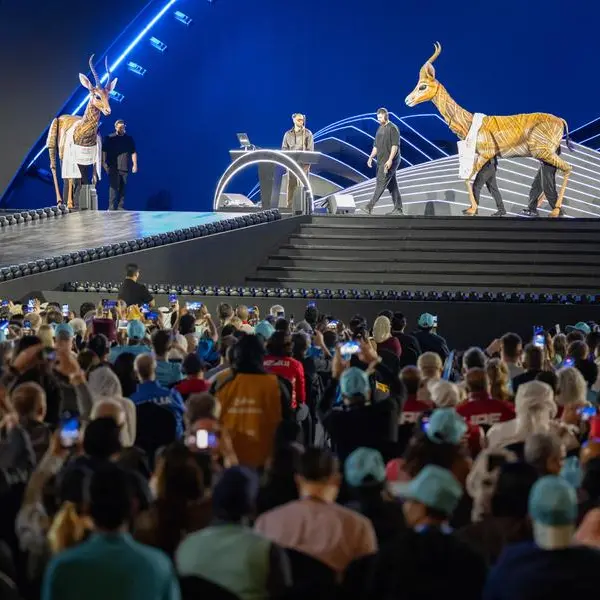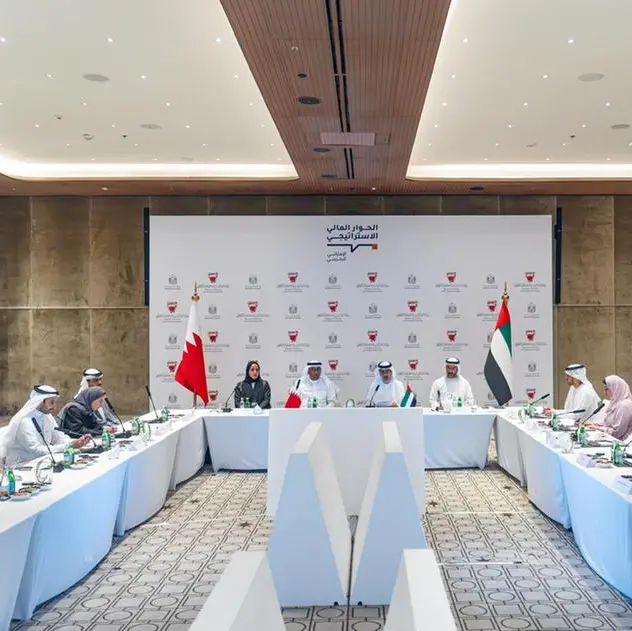PHOTO
Dubai – UAE: Attendees on the fourth day of SpaceOps2023, the 17th International Conference on Space Operations, hosted by the Mohammed Bin Rashid Space Centre (MBRSC) and held for the first time ever in the Arab world, were treated to a wide range of informative and inspiring research, presentations and sessions, including lunar communications, machine learning, and operations of the James Webb Space Telescope, among other topics and space missions.
In the first plenary session of the day, 'Lunar Communications and International Interoperability', experts from NASA, ESA, JAXA and KARI discussed about developing lunar communications concepts, architectures, space communications systems and ground systems.
Speaking about lunar communication, Wael El-Dali, Space System Engineer European Space Agency (ESA), said, “Lunar communication has a diverse set of users, from CubeSats to complicated missions like pressurised rovers. Each has their own needs and infrastructure requirements as well as constraints on budget and schedule. We would like to invite our partners to invest in lunar communication infrastructure and provide support in implementing, running, and maintaining it.”
At the plenary session, the topic of communication with Mars was also raised, during which Suzanne Dodd from the NASA Jet Propulsion Laboratory said, “Communication time with Mars is at best 10-20 minutes, while to the Moon it is just 3 minutes. Many of the designs made for the Moon can be reconfigured to make use for communication on Mars.” She further added that there were a lot of challenges going to Mars, stating, “It is doable, but not easy. It will take a lot of partners, standards and international collaborations.”
Oral presentations were also held throughout the day, on a wide range of topics including mission design, ground system engineering, human spaceflight and operations, communication and architecture network, guidance, navigation and control along with discussions on improving safety and reliability of space operations, among others.
SpaceOps2023 will conclude on Friday with a closing ceremony in addition to a final day of plenary sessions, special sessions, oral presentations and the exhibition. For more information on the conference, detailed programme schedule and complete list of speakers and exhibitors, please visit: https://spaceops2023.org
-Ends-
For Media Queries:
MBRSC Media Team
mbrsc@quillmena.com
ABOUT MOHAMMED BIN RASHID SPACE CENTRE (MBSRC):
MBRSC is an advanced scientific and technological hub, responsible for making the UAE a world leader in space services and exploration.
Established in 2006, the Mohammad Bin Rashid Space Centre (MBRSC) started out with five engineers, who took it upon themselves to develop their capabilities and expand their knowledge in the field of space, relying on strong will and solid determination. Since then, the centre has continued its journey to be the incubator of the “UAE National Space Programme”. The MBRSC has undertaken the tasks of building, developing, and operating a number of Earth observation satellites, providing imaging services, analysing and studying them, as well as producing relevant data to scientific communities and research centres around the world. Among the satellites that the centre operates are DubaiSat-1 & DubaiSat-2. The MBRSC is also responsible for KhalifaSat, celebrated as the first satellite that was fully built by Emiratis in 2018. Recently, the centre revealed its plan to develop the new satellite MBZ-SAT, which is expected to be launched at the end of 2023 and to be the latest in the field of high-resolution imaging from outer space.




















